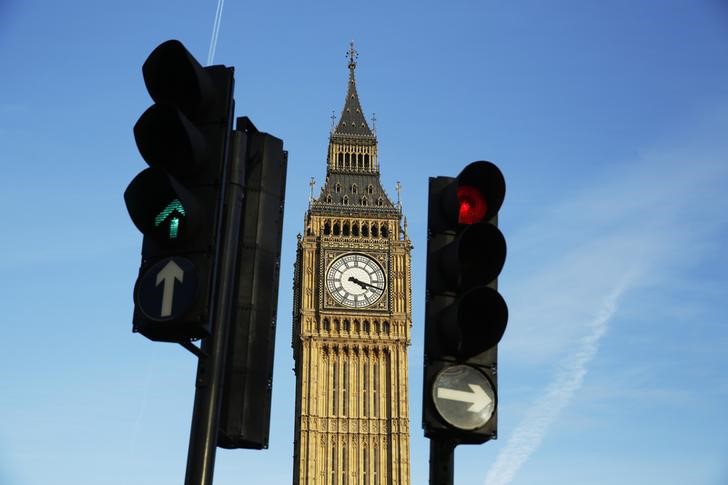U.K. Cuts Taxes as Flagging Economy Falls Into Recession
2022.09.23 05:25
[ad_1]

© Reuters.
By Geoffrey Smith
Investing.com — The new U.K. Government unveiled a suite of measures to cut taxes and stimulate growth as fresh data showed the economy sliding into recession at the end of the third quarter.
Chancellor of the Exchequer Kwasi Kwarteng stood up to announce a widely trailed “mini-budget,” minutes after a closely watched survey showed both services and manufacturing activity contracting in September.
As widely expected, Kwarteng confirmed that the government will cancel a planned increase in corporate income tax from 19% to 25%, that was due to take effect next year, as well as ending an EU-inspired cap on bankers’ bonuses and a reduction in the stamp duty payable on home purchases.
In addition, he announced a cut in the top rate of personal income tax to 40% from April, as well as pre-announcing a cut in the basic rate of income tax to 19%.
The government had already cancelled on Thursday a planned increase in national insurance contributions, introduced under former Prime Minister Boris Johnson.
Kwarteng’s package illustrates a big swing in Conservative Party policy-making back toward the Thatcherite precepts pf low taxation and a small state that had dominated the Party’s thinking until the Great Financial Crisis.
It represents a particularly sharp turn away from the policies of Johnson, who had raised taxes and public spending in an effort to cement electoral support among lower-income voters in Britain’s poorer regions.
Earlier, the U.K. purchasing managers index compiled by S&P Global fell to 48.2, its lowest since February 2021, from 48.9 in August. The ticked up surprisingly to 48.5, but the , which covers a much larger section of the British economy, slumped to 49.2 from 50.9.
The numbers, which were below expectations, drove the pound to a new 37-year low of $1.1150, adding to financial markets’ concerns for the U.K.’s economic outlook.
Financial markets have been unsettled by Truss’s first steps as Prime Minister, which included two big subsidy programs for households and businesses, capping their energy bills for the next six months. Kwarteng estimated the cost of those programs at 60 billion pounds ($67 billion).
[ad_2]
Source link








